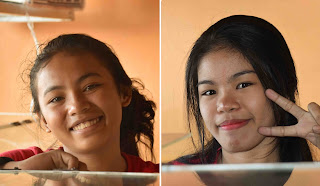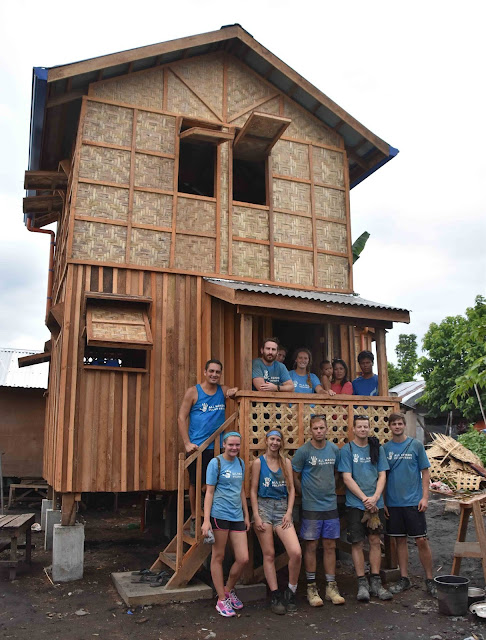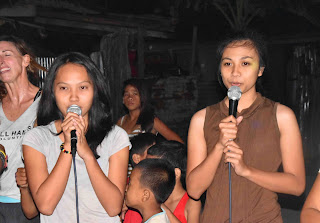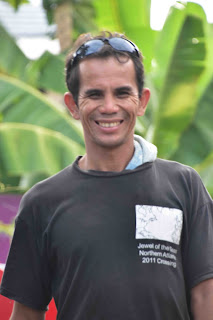 |
| Tacloban Seaside |
When traveling far from home for extended periods of time, it's normal for even the most seasoned traveler to have things that he misses. Usually, we find substitutes to fill the void, but ideally the new experiences are so fulfilling that there just isn't time to miss much. In my current position, I have been able to interview many travelers from different countries. In addition to the queries regarding what makes them tick, I usually add on the question, "What do you miss about home?"
I can remember on past trips, we would all sit around and share those answers, maybe directly related to some deficit in our then current situation, but usually they were all very specific things, all something we all could relate to, and all put a smile on each of our faces to imagine. Digging a well in 100 degree heat in Malawi, we tried to be content with the little things, but someone had to mention something as usually commonplace as "ice." We all stopped to think about the miracle of ice for a moment. Then we dared to go a step further and imagine "pina colada!" Now of course that was directly related to an extreme circumstance, but a lot about travel is relatively extreme in one way or another.
Now, the people I have been interviewing actually surprise me. Besides the standard "my parents," "my dog," and "my bed" answers, most of my interviewees have very little comment on the subject - many with kind of a blank look in their eyes. All of these people are volunteers with an NGO, and most are in their early twenties, so I'm guessing they are just so excited to be out and free or there are many whom I can tell are long-term travelers precisely because they don't want to be at home, and some even show disdain. Furthermore, with a near free-flow of internet connectivity these days, your internet reality travels with you wherever you go, so there is less reality reality to miss!
I don't know, but everywhere I am, I miss some other place. From past experiences, I know others feel the same way. Usually it's a food item; sometimes it's a steak, good beer, In 'N Out Burger, Prosciutto di Parma - something very specific. Other times it is an event - 4th of July and Thanksgiving are tough times for Americans to be abroad. I'm not even a huge sports fanatic, but I still get goosebumps seeing an NFL game on in Prague or an NBA playoff game in the Philippines. In talking recently with a fellow American, who has been gone longer than I have, we both agreed we missed the certain chill in the air that autumn (usually) brings or something as simple as a sofa and a warm blanket. Of course we miss our families, and though we may not be in contact much, we really enjoy seeing photos of Tae Kwon Do practice or silly videos that would otherwise soon be deleted. At the beach, we might miss the snow, and in a remote landlocked location we probably miss the ocean.
Perhaps it's a function of where we have been and lived - what attachments we have made, what we have tasted, what we have seen, and whom we have known. Does the person who has traveled to one hundred countries miss more than the one who has never left the island of her birth? Is that why as soon as we get home we start planning our next trip? Or is it just that we are not content? Perhaps the world is so captivating, that we seek out new places, people, and experiences despite what we miss, because we know the deprivation will be worth it.
If we would miss something enough, does that mean we would never leave? Not sure, but I'll let you know if I ever find out.
















































